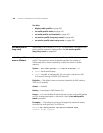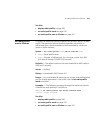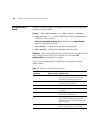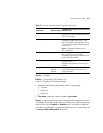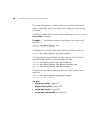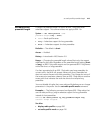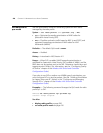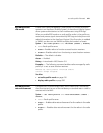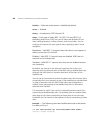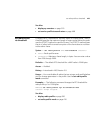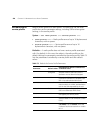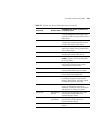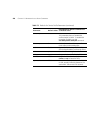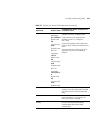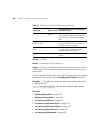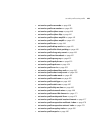422 CHAPTER 11: MANAGED ACCESS POINT COMMANDS
Defaults — Data rate enforcement is disabled by default.
Access — Enabled.
History — Introduced in MSS Version 6.0.
Usage — Each type of radio (802.11a, 802.11b, and 802.11g)
providing service to
an SSID has a set of radio rates allowed for use
when sending beacons, multicast frames, and unicast data. You can
configure the rate set for each type of radio, specifying rates in three
categories:
Mandatory - Valid 802.11 transmit rates that clients must support in
order to
associate with the MAP.
Disabled - Valid 802.11 transmit rates are disabled. MAPs do not
transmit at the
disabled rates.
Standard - Valid 802.11 transmit rates that are not disabled and are
not
mandatory.
By default, the rate set is not enforced, meaning that a client can
associate with and transmit data to the MAP using a disabled data rate,
although the MAP does not transmit data back to the client at the
disabled rate.
You can use this command to enforce the data rates, which means that a
connecting client must transmit at one of the mandatory or standard ates
in order to associate with the MAP. When data rate enforcement is
nabled, clients transmitting at the disabled rates are not allowed to
associate with the MAP.
This command is useful if you want to completely prevent clients from
transmitting at disabled data rates. For example, you can disable slower
data rates so that clients transmitting at these rates do not consume
bandwidth on the channel at the expense of clients transmitting at faster
rates.
Examples — The following command enables data rate enforcement
for radio
profile rp1:
WX# set radio-profile rp1 rate-enforcement mode enable
success: change accepted.



